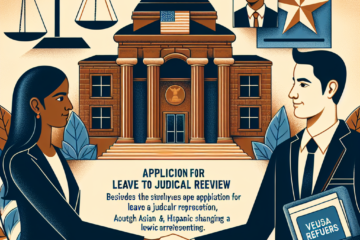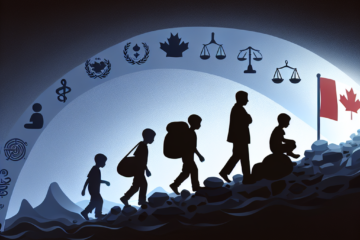The Immigration and Refugee Board of Canada (IRB) is an independent administrative tribunal that plays a critical role in the immigration and refugee process in Canada. One of its many duties is to make decisions on sponsorship appeals, including those related to children. The IRB’s decisions on children‘s sponsorship appeals have significant implications on Canadian immigration policy and the lives of many families. This article aims to provide a deeper understanding of the IRB‘s ruling on children‘s sponsorship appeal in Canadian immigration.
Table of contents
Understanding the IRB‘s Ruling on Children‘s Sponsorship Appeal in Canadian Immigration.
The IRB‘s decisions on children‘s sponsorship appeals in Canadian immigration are based on a comprehensive evaluation of each individual case. The board examines all the evidence and arguments presented to them, including the sponsor’s ability to provide for the child, the child’s best interests, and the genuineness of the relationship between the sponsor and the child. These decisions are guided by the Immigration and Refugee Protection Act (IRPA), which emphasizes the importance of family reunification.
The IRB‘s decisions are significant as they can determine the future of a child’s life in Canada. If the appeal is successful, the child can join the sponsor in Canada and have access to opportunities for a better life. If the appeal is denied, it could mean continued separation of the child from the sponsor. It’s important to note that the IRB‘s decisions are not made lightly and are based on the best interest of the child.
The Impact of IRB’s Decision on Canadian Immigration
The IRB‘s decisions on children‘s sponsorship appeals have a significant impact on Canadian immigration. A successful appeal can lead to an increase in the number of immigrants in Canada, contributing to the country’s multicultural fabric. Not only does this enrich the cultural diversity of Canada, but it also has potential economic benefits as these children grow up and contribute to the Canadian economy.
On the other hand, a denied appeal can lead to potential legal and social issues. It could result in prolonged family separation, causing emotional distress and potential legal battles. In addition, it could discourage potential sponsors from applying, thereby decreasing the number of immigrants coming to Canada.
How the IRB‘s Decision Affects Children
The IRB‘s decision on children‘s sponsorship appeals profoundly affects the lives of the children involved. A successful appeal means that the child can join their sponsor in Canada, potentially offering them a better life, education, and future opportunities. It also means that they can live with their family, which is crucial for a child’s emotional and psychological well-being.
Conversely, a denied appeal can lead to continued separation from the sponsor, which can be emotionally distressing for the child. It could also mean that the child remains in potentially harmful environments or situations, which could negatively impact their well-being and development.
The IRB‘s decisions on children‘s sponsorship appeals in Canadian immigration are of paramount importance. They not only affect the lives of the children and their sponsors, but they also have broader implications for Canadian society and immigration policy. Understanding these decisions and their implications is crucial for anyone involved in the Canadian immigration process. It’s also essential for policymakers and the public to understand the significant role the IRB plays in shaping the multicultural fabric of Canada.



0 Comments